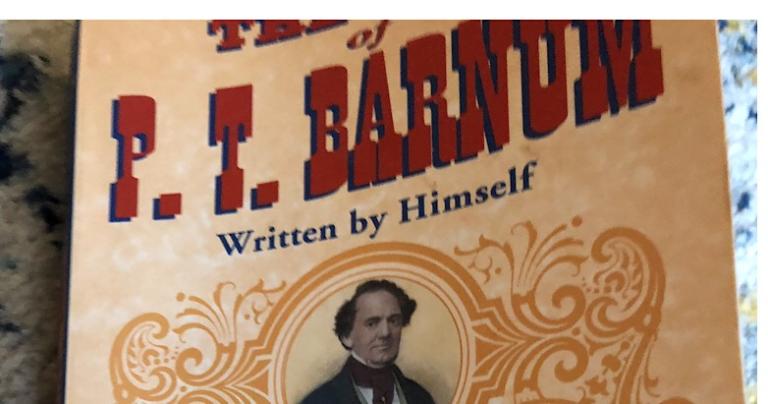 Beware the soft con, the one that seems a bit like a joke.*
Beware the soft con, the one that seems a bit like a joke.*
Over the Holidays, Barnum was in the air in our house with a fairly excellent movie having little or nothing to do with his life and the gift to me of an autobiography only remotely connected to the facts even if written by the subject. It was all enough to force me to read a more serious PT Barnum biography.
It was worth the time: PT Barnum was the Bill Clinton of his era, America’s first lovable rogue. He was a humbug who told people about his scams, but since they were entertained by the buildup and then the reveal, Americans forgave him. They even made him out to be a bigger scam artist than he really was . . . He did not think a sucker was born every minute and he liked his audiences who made him the equivalent of a billionaire.
His audiences were “victims” of a soft-con: a ripoff where the “victim” was still entertained. What the audience missed were the people (like slaves and “freaks”) that Barnum harmed in process of becoming a rich man. Of course, like most lovable rogues, PT Barnum was a complicated man. He left “General Tom Thumb” (Charles Stratton) much better off than he found him and advocated for some good causes. If he lied about having found a mermaid and sold us on a fake, we could visit his American Museum (our first Disneyland) and see lots of cool stuff anyway. He was right that Americans were (if anything) joyless with too few holidays and a grinding work ethic. Barnum loved his country enough to hope it could have fun.
Most of all, however, Barnum loved Barnum.
This was not the self-love of the diseased narcissistic man, but a person with bad priorities. Barnum loved his wife (both of them), daughters, family, state, and nation. He served them, but Barnum loved himself most of all. He was capable of inspiriting devotion, even friendship, but mostly he was capable of getting rich. The soft-con left the conman rich, but littered the world with victims.
Yet Barnum survives to this day by being a complicated man. He was a showman who was a Prohibitionist, a popular cause on the left of his day, never scamming too much, and delivering real value to his audiences with entertainers like the luminous Jenny Lind, the Swedish Nightengale, who could really sing and taught us to love fine music.
His service to Bridgeport Connecticut was positive. Barnum loved his nation, and ended up working for the abolition of slavery. This is hard to praise, given he had owned an enslaved person he used in an early scam. Perhaps like Tom Thumb, Joice Heth was materially better off with Barnum pretending to be George Washington’s nurse, but it was still an ugly bit of business.
Barnum was more than morally complicated. He was interesting and Americans have long forgiven people for much if they are not dull.
And that is the problem with PT Barnum and the soft con. We see the “victim” (the audience) and the old showman, Barnum notes he was called “old Barnum” before even reaching middle age, but we do not see the rubble left in on the sides. The soft-con participated in slavery, treated animals cruelly, and exploited “freaks.” Barnum pushed out to the edges of moral American behavior and crossed the line not with his audience, but with his workers.
Some of them like him, some did not. Barnum exposed harmful humbugs (like spiritualists) late in life, but got rich on lies. His distinction that we like being lied to has done little good in American history and continues to do great harm. The truth is hard, we all bend it, but to encourage and purposefully lie to people is not good . . . Even if we are entertained.
The practical joke ceases to be a joke when the joker makes money on the stooge or is cruel to some third-party to make the joke go. Telling a man he is now a father, when he is not, a Barnum practical joke, is callous and not so funny, but using an aged woman, or a disabled person, in an exhibition is cruel and exploitative.
It is not ok.
Fakery is not ok.
Making money on lies is not ok.
Being too kind to our Barnums is not ok. We all do things we regret. I have. Nobody lives up the standards we set. We are sorry, but to live a life on a soft-scam, to lie for a living, corrupts the culture.
————————————
*Terence Whalen wrote an insightful, and largely sympathetic, introduction to the version of the Barnum “autobiograph” I read that introduced me to the idea of a soft con.











